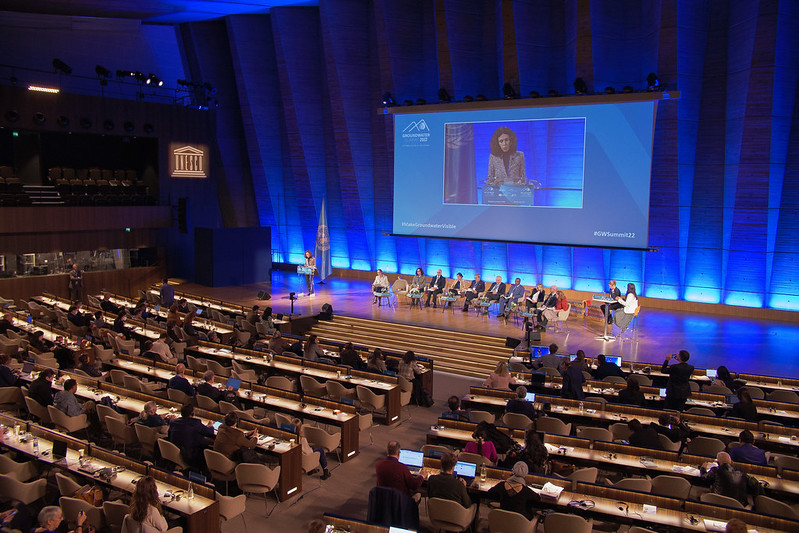Groundwater Summit 2022: The culminating event of the UN-Water year to make the invisible visible
The UN-Water Summit on Groundwater, a high-level conference on the world’s largest liquid freshwater resource, puts a spotlight on groundwater’s crucial role for achieving SDG 6 and other interlinked goals.

The Summit featured a pre-summit event on 6 December followed by a day of official sessions dedicated to the five accelerators listed in the SDG 6 Global Acceleration Framework: Data and information, Capacity development, Innovation, Finance, and Governance. It was coordinated by UNESCO-IHE and the International Groundwater Resources Assessment Centre (IGRAC), with UNDP–SIWI as part of the Task Force and held in Paris on the 6–8 December 2022.
The UNDP–SIWI Water Governance Facility coordinated the Governance session, the third in a series of events that began with an online session at the World Water Week in Stockholm (Governing groundwater: Achieving the SDGs through accelerating inclusion and participation, see video below), and continued with a side event at the Summit (Adaptation and flexibility in the context of groundwater governance and the SDGs – the case of food security). These were co-organised by UNDP, SIWI, IWRA, IW:LEARN, UNESCO, and the Ministry of Foreign Affairs, Government of Slovenia.
SIWI’s Dr Jenny Grönwall wrote the Summit’s official overview of Groundwater governance, depicting how this should be conceptualized along with a state of the topic in relation to the achievement of SDG 6.
“This overview provides a definition that distinguishes groundwater governance from groundwater management,” says Jenny Grönwall. “This draws on how the 2022 UN World Water Development Report, and the multi-stakeholder Groundwater Governance Project before that, frames governance as being about the decision-making processes, law and policy, planning and outcomes at different levels of the administration. In short, governance is much about the enabling environment. In comparison, management of groundwater and aquifers involves decisions on permits, practical implementation activities, and day-to-day operations of facilities and infrastructure. Both parts are needed to protect groundwater.”
When the SDG 6 Global Acceleration Framework was launched as part of the “Decade of Action” to catalyse individual and collective efforts to achieve SDG 6, it was stressed that the Governance pillar offers opportunity for further empowerment of users, practitioners, and civil society. Indeed, when it comes to water, Jenny Grönwall highlights that in being ‘multi-levelled,’ governance involves a diversity of actors with different degrees of power, influence, and knowledge – from the international, regional and national, down to the most local level where we find the well or borehole owners.